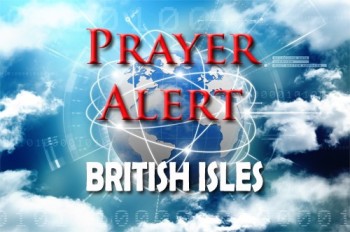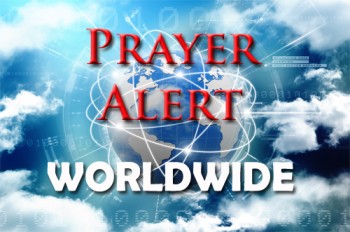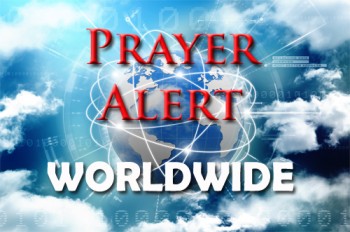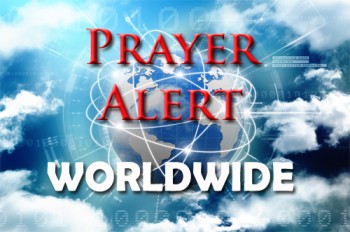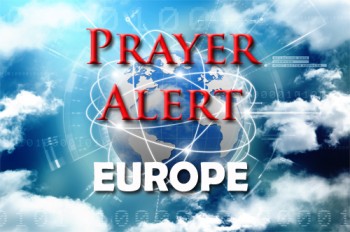Displaying items by tag: new laws
‘Thought crime' laws
Campaigners say freedom of thought is being criminalised after MPs voted against an amendment to protect silent prayer and consensual conversations around abortion clinics. The amendment proposed to protect peaceful prayer and conversations was lost by 116 in favour to 299 against. Christian advocacy group ADF UK said that this is the first time that Parliament has voted to introduce in modern British history 'thought crime'. Nobody should be arrested, go to court and face these measures simply for holding a peaceful silent prayer in their own mind. The censorship zones around abortion clinics are intended to prevent the harassment of women using abortion services, but this new legislation removes ‘valid choices’ for those in crisis pregnancies and is ‘devastating’ for women and Christians. MP Andrew Lewer said, ‘the clause leads us into the territory of thought crimes and creates unprecedented interference with the rights to freedom of speech and thought in the UK that would not be out of place in a dystopian novel’.
India: protests over farm laws
Indian farmers have been protesting against farm acts passed by the parliament last September. Their unions have demanded the laws be repealed, and will accept nothing less. The new acts, which exclude guarantees giving farmers a fair price for their produce, are described as ‘anti-farmer laws’ by the unions and opposition politicians. Since September the protests have become more violent. On 26 November a nationwide general strike by 250 million people took place in support of the farmer unions,and on 30 November 300,000 farmers converged in various places from the Punjab to Delhi. On 26 January tens of thousands violently fought the police, overturned vehicles, and hoisted religious flags from the ramparts of Delhi’s Red Fort. See
Hong Kong: national security
55 Hong Kong activists and former politicians were arrested for subversion under the controversial national security legislation. They were later released on bail without their passports or travel documents. Next they held a news conference where Fernando Cheung spoke. He is a politician who resigned his seat in protest alongside other pro-democracy lawmakers in November. He believes the authorities will press charges after they have sorted out any evidence they gathered via sweeping search warrants executed by over 1,000 police officers. He said this is an effective way to bar them from seeking asylum. Since the national security law was passed, numerous Hong Kong activists have fled into exile. Many believe police may have allowed the activists to go free on bail to avoid fuelling international criticism. US secretary of state Michael Pompeo called the mass arrests an outrage that demonstrated the Chinese Communist Party’s contempt for its own people and the rule of law.
Hong Kong: security law passed
China has passed a controversial national security legislation for Hong Kong that will cover acts of ‘secession, subversion, terrorism and interference by foreign powers in the territory's internal affairs’ while allowing mainland China’s intelligence agencies to establish themselves there. Critics say this will outlaw dissent and destroy the autonomy and freedoms promised in the Sino-GB agreement when Hong Kong was returned to China in 1997. The draft of the law was announced on the anniversary of this event, symbolically implying that China is in charge and its leaders will do whatever they deem necessary to protect Hong Kong. On 1 July police fired water cannon and tear gas while arresting 300+ people protesting in defiance of the sweeping legislation, and a ‘dissident’ was arrested at the airport before boarding a plane to the UK. Amnesty International warned, ‘China's aim is to govern Hong Kong through fear from this point forward’.
Russia: Christians and new laws
Security agencies are using ‘Yarovaya Law’ to impose harsh restrictions on evangelical Christians to tackle ‘extremist’ activities. The law demands permits to enable meeting outside registered religious buildings - outlawing house churches and prayer meetings. The law gives security agencies access to private phone conversations and text messages. There are few Protestants who have not been impacted by the law. A Moscow pastor with a congregation of 50 who are interrupted most Sundays by police said, ‘Authorities dressed as civilians knock on our door, asking to come in and “pray”. If we refuse they film us turning them away and use the footage against us. If we let them in they take pictures inside the church to identify ways that we are violating the law and must pay fines for “illegal missionary activity”’. Meanwhile President Putin’s revised constitution wants gay marriage to be forbidden. It will be put to a public vote. See
